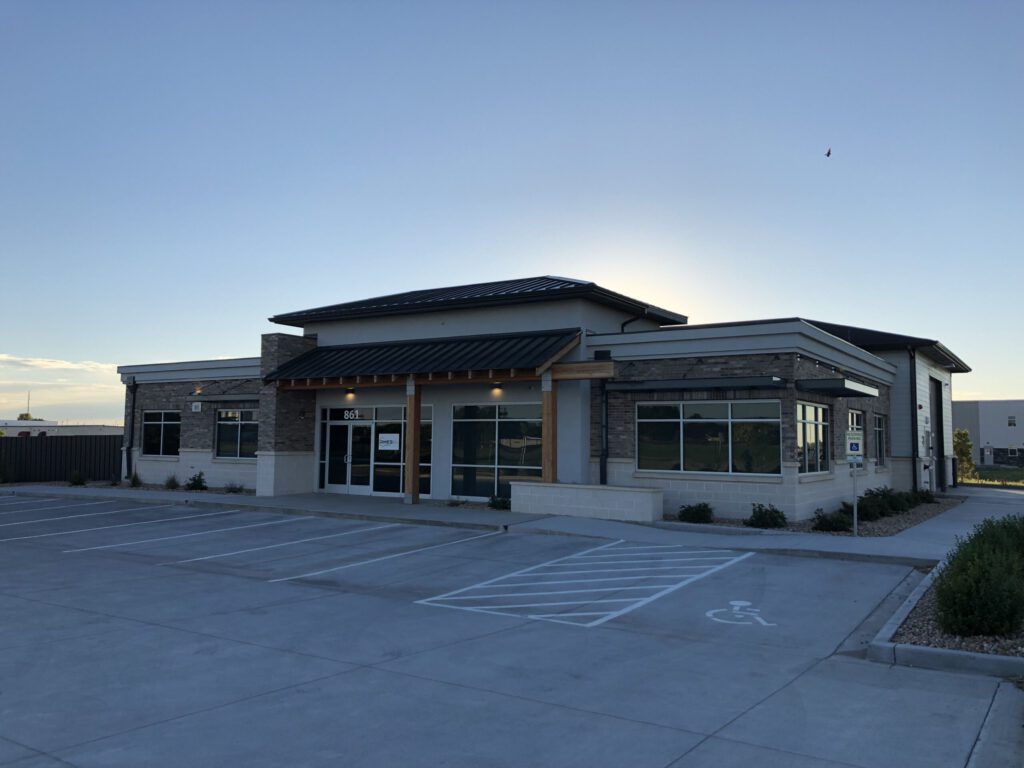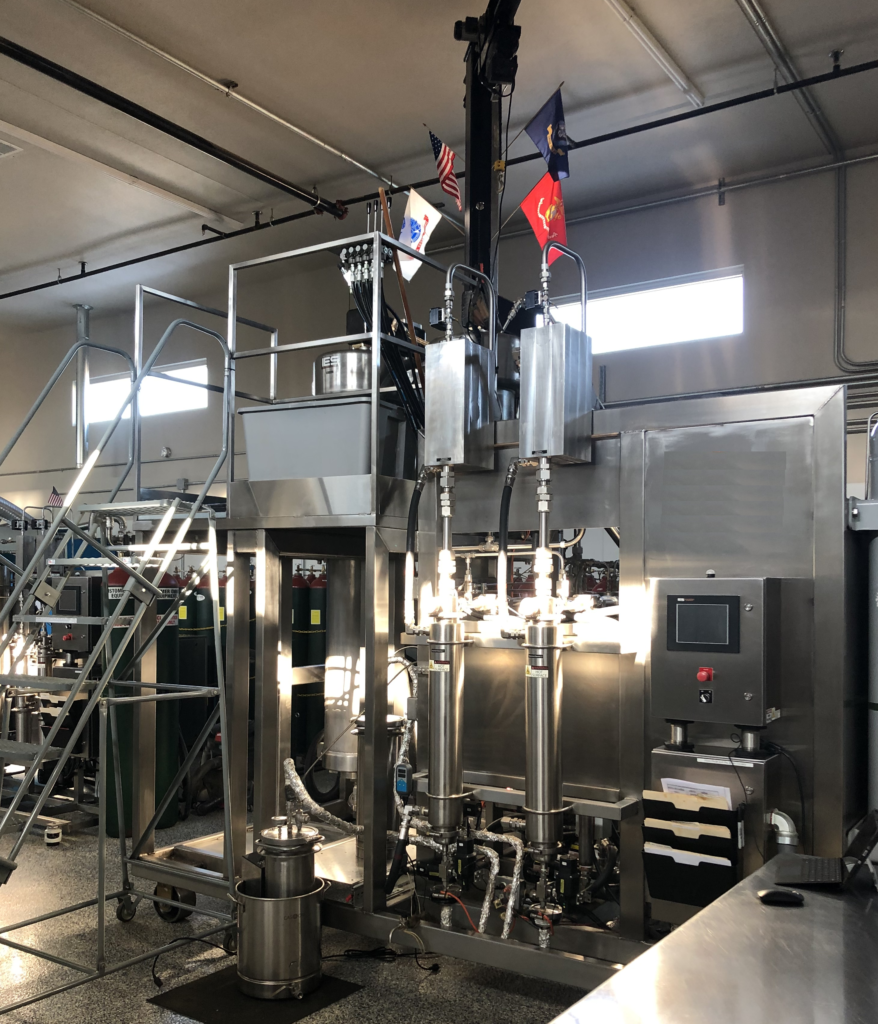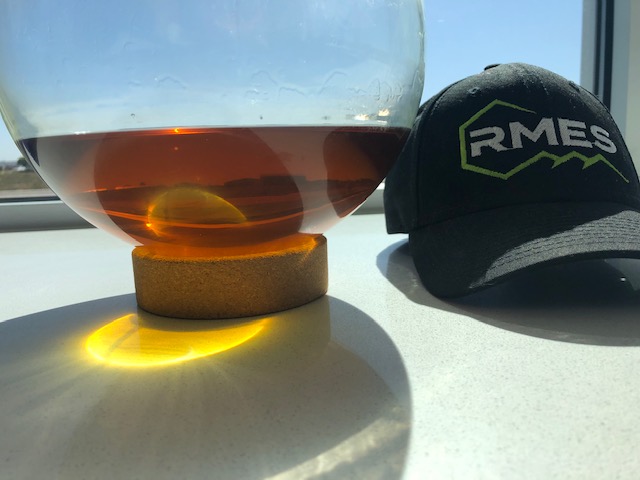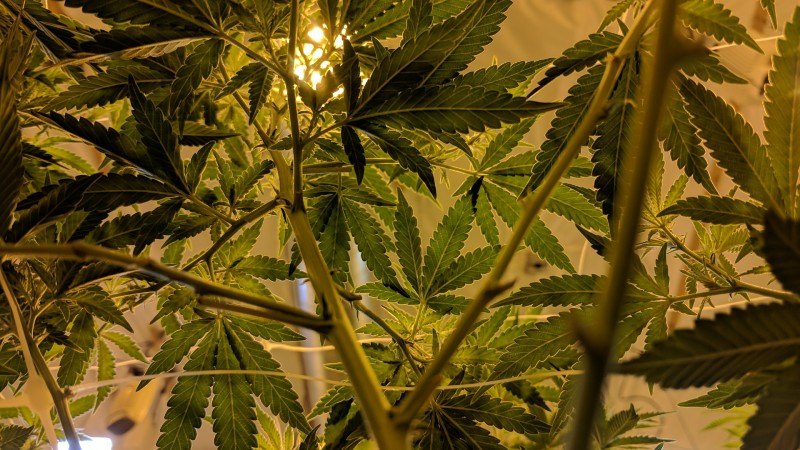Rocky Mountain Extraction Services (RMES) has come a long way since incorporating 18 months ago.
The 2018 Hemp Farming Act was the catalyst, although opening their doors wasn’t quite so simple.
“Originally, we felt like [the Hemp Farming Act] was a green light,” says CTO Jerry Van Sickle. “What we found was that it was more of a yellow light.”

Because of hemp’s association with recreational marijuana, Van Sickle and CEO Scott McWhorter discovered challenges in commercial property leasing and banking for RMES — even though they were specializing in manufacturing organically-sourced CBD extracts and distillates rather than THC.
After transitioning from previous engineering careers in the area, the partners knew they wanted to be located in Weld County.
They approached the bank from a professional, compliant perspective.
“Ours is a legitimate business and we chose to just represent it as a legitimate business, and not really harp on the fact that it’s not THC,” McWhorter says. “We just talked about our business and how we do things and how we are focused on compliance, traceability, and transparency.”
Today, McWhorter and Van Sickle, along with Chief Analytical Chemist John Eickhoff, work with customers around the world, from new startups to large enterprises, offering targeted extractions and organically certified products and services — something unique in the market.
“One of the things that sets our THC non-detect products apart is that we do it in an organically-certified manner using no solvents of any kind throughout any of our process,” Van Sickle says.

What’s more, RMES can offer very targeted and specific extractions when it comes to the ratio of CBD to THC.
They can transform a ratio of 25:1 biomass to a 36:1 extract.
“It’s easy to make a product for consumers that’s compliant with the federal regulations when you have that great ratio,” McWhorter says.
Since incorporating, RMES has scaled the business to process a large amount of biomass, 1000-1200 pounds a day.
“This allows us to work with larger farms and provide oil for larger businesses,” Van Sickle adds.
One unexpected result is that some of RMES’ competitors have become some of their biggest customers.
As the industry learned about RMES’ unique product, competitors approached and asked if RMES would be willing to work with them.
“They have biomass they want to be extracted a certain way, and we can do that. It is great to work in an industry that is open and collaborative.”

Keeping this service-oriented approach in mind, RMES also offers a white label program.
“We started offering a variety of products that are certified organic to customers that want to go out and promote their own brand and sell CBD into their market,” McWhorter says. “And since we don’t have a consumer brand, we don’t compete with those customers.”
As the RMES team sees it, CBD manufacturing as an industry has opened up a lot of opportunities, especially in Colorado.
“It’s exciting to see that and be a part of that,” Van Sickle says.





